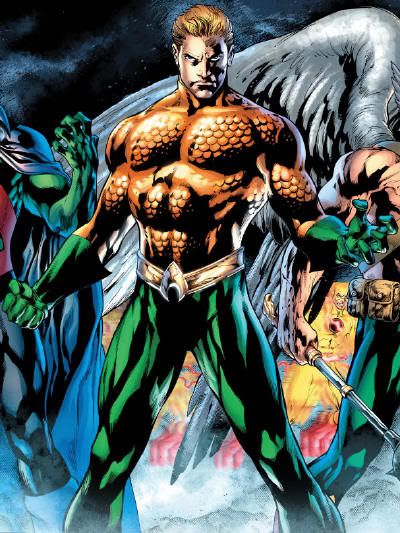
I have always respected Aquaman. There’s a hierarchy to super-heroes after all, so when one breaks into the public consciousness, it matters. Someone like Captain Marvel might not mean much today, but at one time he outsold Superman, had his own movie serial, and was a universal point of reference on a sitcom whose lead character routinely exclaimed “Shazam!” Aquaman never had that degree of success, but his claim to fame is tenacity, and that's sustained him in a way the Big Red Cheese couldn't touch.
Aquaman spent most of the 1940s as a mild mannered Sub-Mariner knock-off, but while bigger names ceased publication in the lean years following World War II, Aquaman’s strip kept chugging along. The Sea King managed to stay in continuous publication through into the 1960s, which led to the greatest boon of his career, co-founding the Justice League of America. The increased visibility granted by that popular title saw Aquaman graduating out of anthologies and into his own book, which in turn generated a memorable animated series. While Aquaman could maintain neither in the end, the 1970s saw him in the long-running Super Friends cartoon, a continued presence in JLofA comics, and even several revival attempts.
As a child, I owned a Mego Pocket Hero action figure of Aquaman, and was plenty familiar with him through his cartoons and merchandising. While the Sea King had never reached the true gold standard of super-hero popularity, the live action adaptation (Dr. Strange notwithstanding,) he was clearly amongst the upper echelon. However, for this young fan, Aquaman lacked representation where it mattered most, in the actual comics. Growing up in Texas, the newsstands and flea market booths so strongly favored Marvel Comics, I rarely even tumbled upon a Justice League comic, much less anything spotlighting the hero solo. I would see impressive house ads in the DC books that did manage wide circulation, like the New Teen Titans, but actually reading about Aquaman proved next to impossible.
By the early ‘90s I had regular access to comic shops, but by that point DC had seemingly abandoned all support for the character. There was an ill-fated relaunch I could have ordered at the time, but upon finding that underneath the fantastic Kevin Maguire covers were unknown creators clearly out of step with the times, I took a pass. Finally, in the mid-90s, it was announced that one of the biggest writers in comics, Peter David, would be taking the character on. David was a personal favorite of mine going back to his earliest days on Peter Parker, the Spectacular Spider-Man and Marc Hazzard: Merc, plus his Incredible Hulk was a current hit. Promising Aquaman would experience an earth-shattering event along the lines of the death of Superman, breaking of Batman, and so on, I decided to finally take the plunge.
I started buying anything Aquaman I could find. The brief Skeates/Aparo revival looked great and was exciting, despite underwhelming villains and overwrought melodrama. The various anthology appearances that followed left me cold, so I quickly dropped my pursuit of them. The 1986 mini-series that introduced the blue camouflage costume looked fantastic, but after years of heightened expectations, actually reading its amateurish script was a painful experience. A dull follow-up special seemingly designed to negate the mini-series only compounded my chagrin.
The book that finally turned me into a fan was the one-shot The Legend of Aquaman. While this revisionist origin story borrowed heavily from Tarzan and outright stole the background of Aquaman’s sidekick Aqualad as his own, the marriage of epic fantasy and super-heroics sold me. For the first time, I felt the majestic scale of Aquaman’s odyssey, the sense that he was the center of his own section of the DC Universe. Unfortunately, most of the same creative team then produced a six-issue mini-series that only made Aquaman seem small and insignificant, forever ruining his relationship with wife Mera, and pitting him against ridiculous looking alien invaders. I continued into the aforementioned ‘90s series, which on second assessment proved a much better thought out and entertaining book than most anything that had preceded it. Unfortunately, it had been canceled in part due to the anticipation of Peter David’s relaunch, and given a few months lead time as a lame duck, which was how it read at the end.
Although advertised as a “Year One” story, Peter David’s Time & Tide mini-series respected and avoided covering the same ground as Legend. Instead, David applied elements of his little read earlier mini-series The Atlantis Chronicles, and explored events in Silver Age Aquaman stories which would by necessity have to be altered by the Post-Crisis continuity, but had yet to be addressed elsewhere. While an attractive looking book, the expansive ground covered and fractured chronology of the telling left me a bit out of sorts with the result. Eventually, an ongoing series arrived, and any reservations I had after Time & Tide were compounded.
In a Wizard Magazine interview, Peter David offered a one word tease for his upcoming plans: “piranhas.” Of all the imagery that could conjure up, who would have expected it would refer to a villain with a nigh-unpronounceable name holding Aquaman’s left hand underwater while it was eaten off? Bad enough Aquaman had seen his son’s death go unavenged, but to just sit there going “ow—quit it” while losing an appendage did nothing for his image. A beard, the infamous “Golden Mullet,” a new costume sewn from scraps of Sub-Mariner’s ‘70s get-up, a laughable hi-tech harpoon-like prosthesis, a snarling bad attitude and a plodding direction added up to a historically long but not exactly redemptive ongoing series. After David was driven off the book before its fiftieth issue, Erik Larsen and Dan Jurgens had runs where, when distinguished, were such due to their ill-advised nature. Another relaunch and more revisions followed, none sticking for long.
Here we are, nearly twenty years since I started reading Aquaman comics, and better than fifteen since Peter David’s alterations began a chain reaction of misguided steps, until the reset button has finally been pushed. Following a death and resurrection, a familiar and whole Aquaman walks amongst us again, with a few reasonable tweaks to his classic costume to mark the occasion. Unfortunately, there isn’t much left for him to return to. Atlantis has been destroyed, virtually his entire supporting cast (Aqualad/Tempest, Dolphin, estranged son Koryak, Aquagirl, Vulko) is dead, and only his homicidal maniac ex-wife is left to greet him. While cutting ties with such a suffocating past might be best, Aquaman still seems in the grip of the melancholy that has haunted him since his son’s death 33 years ago, and there are many questions about where to go from here. Personally, I’m looking forward to the future of the Sea King for the first time in ages, and hope in conjunction with his renewed popularity in outside media (now including live-action,) we can finally have the iconic Aquaman we deserve. After all, we wouldn’t want him to end up like poor Captain Marvel, a half-wit forever in Superman’s shadow…

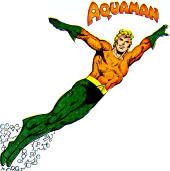

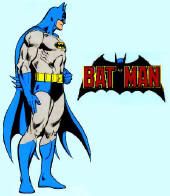
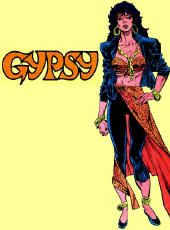

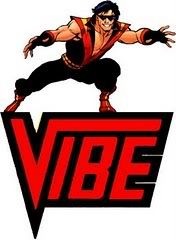
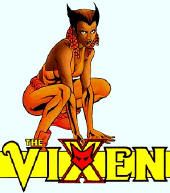

2 comments:
Grant Morrison had what may be the most insightful comment I have ever read about Aquaman, when talking about how to use him in JLA: (paraphrase) Aquaman is a hero from the sea, not a hero of the sea. That's the most concise way I can think of the character: The Hero From The Sea.
Will Johns go in that direction? I would like to think so. I'd like to think that the end of Brightest Day will give us well-adjusted versions of Aquaman, Hawkman, Martian Manhunter, and Firestorm, ready to step into the Justice League or a solo feature or what-have-you.
Aquaman specifically needs to cut ties with his past without forgetting entirely about it. As much as Johns and company have made about Barry Allen being all about his "second chance," Aquaman might even be more appropriate for that appoach.
Time will out, I guess.
That's a great line. No one talks crap about a Manhunter from Mars doing time on Earth. Yet, for some reason, folks think Aquaman has to be about undersea castles and talking to fishies. Well okay, the reason is because that's how he was written for decades, especially when the one-hour weakness came into play. Still, the latter was pretty much done away with a teenager ago, and the former needn't be set in stone.
Post a Comment